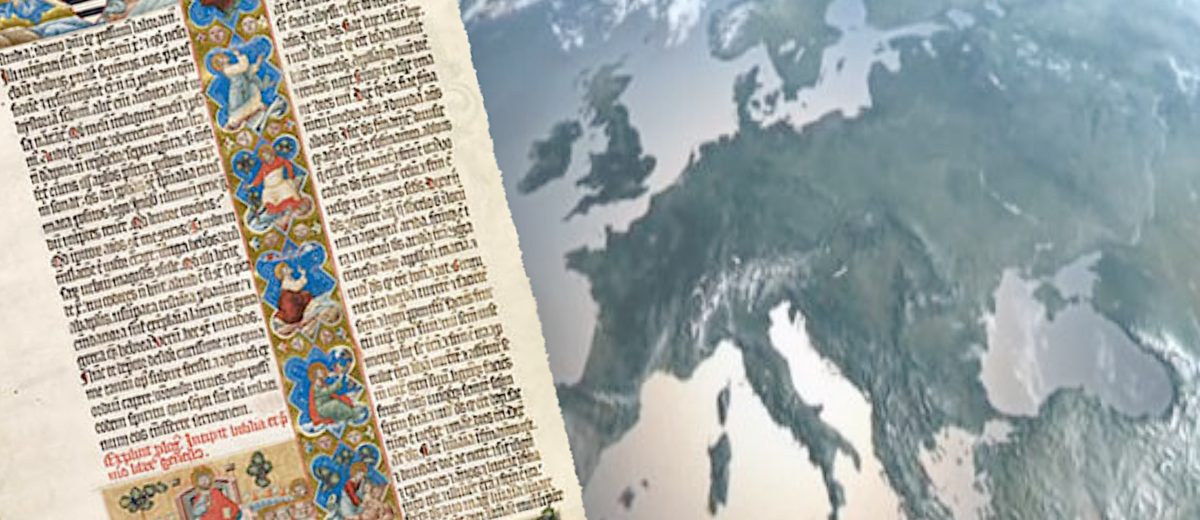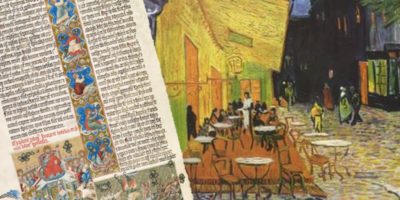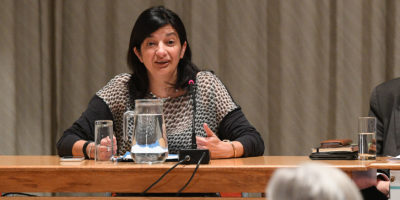During the summer months, the weekly words will be of a slightly different nature. Shorter than usual, they will be based on draft chapters for a popular-style, coffee-table, illustrated gift book about how the Bible has shaped so many facets of our western lives.
This is a project I am working on together with Indian philosopher and speaker Vishal Mangalwadi, author of ‘The Book that made your world’. We invite your feedback and suggestions as we attempt to connect with biblically illiterate readers.
Right now, Romkje and I are in Ireland for this year’s Celtic Heritage Tour. We will visit many old monastic sites and other historical locations, as we trace the story of the faithful minorities who shaped the story of the British Isles.
After the tour, we will prepare for the Masterclass in European Studies, August 6-10, in Amsterdam, designed to equip anyone working in missions or the public square with insight into the challenging mission field of Europe. Here again, Professor Evert Van de Poll and I will examine with participants the paradox of Europe: the continent most shaped by the Bible’s message and by the rejection of that message.
Could this opportunity help you in your work and calling? Why not join us in the heart of this vigorous city for these days?
The Bible is the key book of Europe’s story. Our coffee-table book project aims to promote awareness of the centrality of this book’s influence to our western way of life and thinking.
So let’s start here with our introduction to the book:
Trying to understand western culture without knowing the Bible is like watching a 3D movie without any special glasses.
Biblical illiteracy is eroding our western cultural heritage. A generation ignorant of the themes and stories of the Bible has lost the code to understanding many of the literary, musical, visual and dramatic works of, for example, Shakespeare, Bach, Rembrandt and Dante.
Or of Dan Brown, U2, Hollywood and Jesus Christ Superstar, for that matter. For much of the poetry, literature and films of the 20th century assumed a now-lost biblical literacy.
This book demonstrates how the Bible has shaped our art and music, our language and literature, our politics and democracy, our morality and ethics, our law and justice, our marriages and families, our business and economics, our perceptions of human dignity and equality, our understanding of time and history – even our science and technology – far more than any other influence.
Yet the Bible is strangely absent from our educational curricula and public institutions.
We don’t need ‘faith’ to recognise the uniqueness of this book. No book has been so widely published and translated into so many languages. It is the most loved and hated book of all time, the most quoted and criticised book ever, the most smuggled and most destroyed book in human history.
The Bible’s very existence is unique. It is a portable library (biblia) of sixty-six books compiled without a general editor, the work of over forty writers spread over at least fifty generations on three continents and in three languages. Their combined work offers remarkably harmonious answers to the deepest questions of life: Who is God? who are we? where have we come from? where are we going to? how should we live our lives?
The Bible has been a source of inspiration and comfort for countless millions globally for more over many centuries. Sadly, it has also been misused to unleash wars, persecutions and injustices. Power and wealth, xenophobia and racism have too often drowned out its core message of love and acceptance, forgiveness and reconciliation, equality and dignity, brotherhood and hospitality, mercy and compassion, peace and freedom.
Then as now. For again we see religious nationalism being used to exclude the ‘other’. At the same time, the loss of this heritage means we no longer know our own culture, and we become insecure towards other cultures.
We hope these pages will help you, the reader, rediscover this remarkable Biblical cultural heritage.
Till next week,




[…] coffee-table book about how the Bible has shaped so many facets of our western lives. The first chapter proposed that the Bible is the key for understanding Europe. The second and third chapters […]
[…] coffee-table book about how the Bible has shaped so many facets of our western lives. The first chapter proposed that the Bible is the key for understanding Europe. The second, third and fourth […]
[…] coffee-table book about how the Bible has shaped so many facets of our western lives. The first chapter proposed that the Bible is the key for understanding Europe. The second, third, fourth and […]